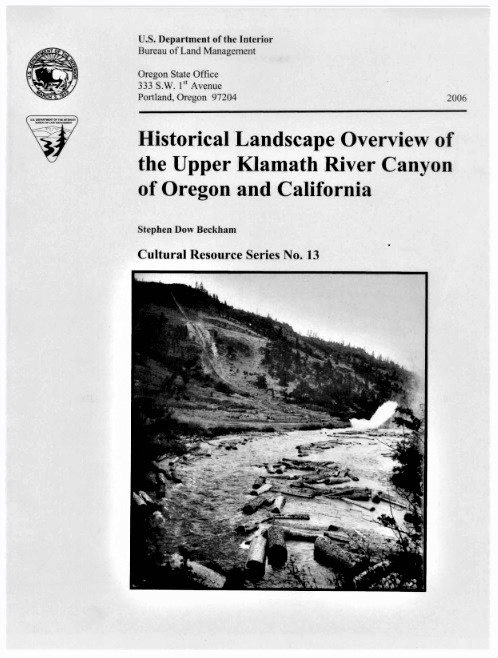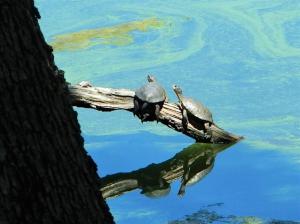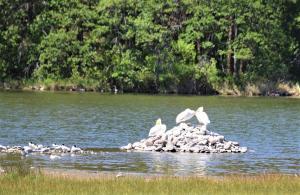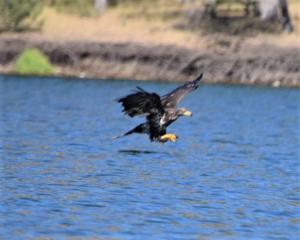https://www.einpresswire.com/article/546614530/compelling-facts-condemn-krrc-s-proposed-klamath-river-dam-removal-plan
Compelling Facts Condemn KRRC’s Proposed Klamath
River Dam Removal Plan
"Economics Not Salmon Is the Reason PacifiCorp is Removing the
Dams”
Glen Spain - Eugene
attorney, PCFFA Regional Director
NEWS
PROVIDED BY
Wild Horse Ranch Productions
July 19, 2021
Recent shocking disclosures made by lawyer
and KRRC Board Member Glen Spain; including: “Economics Not
Salmon Is the Reason PacifiCorp is Removing the Dams”.YREKA,
CALIFORNIA, UNITED
STATES, July 19, 2021 /EINPresswire.com/
-- "PROBLEM: You seem to be under the mistaken belief (widely
held, but nevertheless completely false) that it is salmon
restoration considerations that is empowering the now inevitable
removal of the four Klamath mainstem dams. THIS IS NOT THE
REASON THE DAMS WILL COME DOWN. The real reason is pure
economics." ~ Mr. Glen Spain.
The above quote was in fact made by lawyer
and Klamath River Renewal Corporation board member, Mr. Glen
Spain, in a public email from Spain dated July 24, 2018 to
naturalist William E. Simpson II and a myriad of other public
officials and recipients.
This is not the only time that Glen Spain
has tossed the Salmon argument aside as he has in his diatribe
of July 8, 2021 to Mr. Simpson.
In that same email Spain said; “Ultimately
however whether Salmon did or did not exist above the dams is
irrelevant to PacifiCorp’s decision to remove the dams today.”
And near the end of the same email, Mr. Spain reiterates that;
“Economics Not Salmon Is the Reason PacifiCorp is Removing the
Dams”.
A recent series of investigative
reports has
revealed important new information that poses compelling and
indisputable arguments against any removal of the Klamath River
dams. And it seems the unveiling of the hard facts is causing
Mr. Spain to walk-back a lot of what he has previously said
publicly.
https://www.einnews.com/pr_news/546308904/klamath-river-dams-removal-project-defies-logic-and-common-sense-major-flaws-and-misrepresentations-in-plan-revealed
This new information has been arguably
kept under wraps by people who are incentivized in favor of dam
removal. And that’s because this new information conflicts with
information provided to the Federal Energy Commission (‘FERC’),
legislators and the public by KRRC, Mr. Glen Spain and some
fishing groups. Importantly, Mr. Spain was one of the earliest
members of KRRC’s board of directors.
In the eleven-miles that encompass the
area surrounding Copco and Iron Gate Lakes on the Klamath River,
the unique habitat there supports numerous rare, threatened and
endangered species of birds, amphibians, reptiles and mammals,
along with rare flora.
A published 2006 Department of Interior (‘DOI’)
document (SEE IMAGES) cites just a fraction of the amazing
biodiversity that would be lost if the lakes are drained via
dam-removal:
“The Upper Klamath River Canyon is a
setting with a wide diversity of plant species. The area's
transition between Coast and Basin and the river corridor have
contributed to the unique setting holding the variety of flora.
Trees include willows, pines, ash, oak, cedar, juniper, alder
and birch. Shrubs range from poison oak and sumac to dogwood,
manzanita, honeysuckle, currant, mock orange, ninebark, plum,
chokecherry, crabapple, snowberry, sagebrush (several
varieties), and Oregon grape. Dozens of herbaceous plants grow
in this region; they include seven species of orchids, more than
twenty lilies, and several varieties of paintbrushes. Grasses,
ferns, horsetails, and lichens are also indigenous to the region
(Bureau of Land Management 2003 [2]: 127-140).”
According to a 2006 study, there are at
least seventy-one (71) species of plants including trees,
grasses and forbs.
Co-evolved fauna cataloged by DOI includes
at least 89 species:
“Wildlife includes several mammals, birds,
fish, amphibians, and reptiles. Although grizzly bears and
wolves are now extinct, large game includes black bear, wild
boar, black-tailed deer, mule deer, elk, and mountain lion.
Smaller mammals range from beaver, ermine, and fisher to bats,
river otter, foxes, squirrels, chipmunks, rabbits, shrews,
woodrats, and voles. Twenty-three reptiles live in the area and
include the western rattlesnake, garter snake, and pond turtle.
Nineteen raptors, five game birds, eleven woodpeckers, more than
two dozen water-associated birds, and several dozen land birds
are at home in this setting. Fish resources include red band
[salmon] trout and rainbow trout.”
This acknowledged amazing biodiversity
would be virtually wiped-out if the lakes behind the dams are
drained.
What has been kept out of the public
purview and the media by pro-dam removal zealots is the fact
that a natural lake had existed behind a series of
volcanically-formed lava dams for millions of years!
This lake, called ‘Clammittee Lake’
provided fresh water and shoreline ecosystems for a myriad of
species of aquatic life forms, including the Redband Trout, a
non-anadromous salmonoid, which is a land-locked salmonoid.
The Redband trout-salmon grows to be a
large carnivorous predator of smaller fishes.
This land-locked salmonoid’s habitat in
the Klamath River has for millennia been limited to the area in
the Klamath River basin above Ward Canyon (site of the
volcanic-formed lava dams, and present day Copco 1 dam).
These facts support the argument that
‘allopatric speciation’ of salmonoids had occurred over the past
millennia, giving-rise to the evolution of the unique Redband
salmonoid (Redband Trout).
The past and present range and
distribution of non-anadromous Redband trout-salmonoids is
up-river (Klamath River) from the ‘physical barrier’ created by
nature at Ward Canyon (site of present-day Copco 1 dam); which
was a series of volcanic-formed high-dams that have for millions
of years and up until modern times (1911), blocked migratory (anadromous)
salmonoids.
This brings us to the series of naturally
formed volcanic dams on the Klamath River at Ward Canyon. One of
the series of five lava flow dams, was 130-feet-tall, and formed
a very large lake, five (5) miles long and one-mile wide (larger
in size to the current Copco Lake). That volcanic dam eroded
after millions of years, allowing the water level to fall-back
to a smaller 31-foot-tall lave dam, which continued to provide a
large lake. The water in lake Clammittee was subsequently
held-back by a smaller naturally-formed 31-foot-tall lava dam,
that continued to deny up-river access to migratory salmon right
up until 1911, when the Copco 1 dam was constructed.
These natural dams on the Klamath River,
maintained water in Clammittee Lake that support the diverse
wildlife habitats present today, and for millennia in the past,
and right up until 1911, when construction began on Copco 1 dam
at that site.
There is no doubt that these natural dams
had been blocking fish migration for millennia, leading to the
allopatric speciation of salmonoids (Redband trout) in the
Klamath River basin.
More about sympatric and allopatric
speciation of Redband trout here: https://www.srs.fs.usda.gov/pubs/ja/ja_thurow001.pdf
In 1911, famous engineer and dam builder
J.C. Boyle arrived on-scene at Ward Canyon to begin construction
on COPCO 1 dam. In 1911, J.C. Boyle made detailed drawings of
the 31-foot-tall natural dam and lake, which was one of the
several natural dams that have blocked any possible fish
migration for millions of years. (SEE IMAGE with J.C. Boyle's
drawing)
This fact alone, dispels prior
misinformation and myths about a 'salmon migration' past Ward
Canyon, and thwarts any further statements about such a mythical
fish migration.
Of course, this compelling evidence, along
with Mr. Spain's statement above, completely dismantles the core
reason (fish migration) being promoted by pro-dam removal
zealots for removing the dams in the first place. It's really
just about money.
This is just one example of indisputable
facts that seriously conflict with the propaganda that has been
propagated by KRRC and Mr. Glen Spain.
Maybe going forward, Mr. Spain should
start opinion articles with ‘Once upon a time’ ?
It’s important to note that, Mr. Glen
Spain, currently sits on KRRC’s board of directors, and has been
documented in failing to disclose that he is lawyer and sits on
the Board of Directors for KRRC! This lack of transparency
permeates the culture around the pro-dam removal cult.
The reality is; Mr. Spain’s posits are no
more than conjectures and ‘hear-say’, since he’s not trained in
science or engineering.
Case in point: In the Klamath Falls ‘Herald
and News’,
Mr. Glen Spain provides a myth as to ‘How Klamath dam removal
benefits the region’, but fails to mention his serious conflict
of interest as a lawyer and board member of KRRC! Instead Mr.
Spain uses his alias title as the 'northwest regional director
of the Pacific Coast Federation of Fishermen’s Associations'.
Mr. Glen Spain also has a documented
history of talking out of both sides of his face when needed.
In 2018, as a part of the effort by The
Center for Biodiversity, Mr. Spain was involved in litigation
against the Oregon Department of Forestry (‘ODF’) in regard to a
relatively minuscule amount of sediment that would be created
via a needed ODF project.
The following quote is extracted from a
The Center for Biological Diversity press release dated June 13,
2018:
"SALEM, Ore.— Five fishing and
conservation groups sued the Oregon Department of Forestry today
for poor logging and road-use practices in the Tillamook and
Clatsop state forests that harm threatened coho salmon through
landslides and erosion into streams that violates the Endangered
Species Act."
Per the full
press release,
the people listed in the press release *contacts just below seem
to be supporters of the science that 'erosion' (arguably even
small quantities) dumped into streams and rivers presents a
serious risk to the fishery (at the least) and violates the ESA.
I have to agree with this position since it is logical and
consistent with the best science.
*Contacts: Noah Greenwald, Center for
Biological Diversity, Glen Spain, PCFFA and IFR, Mark Sherwood,
Native Fish Society, Nick Cady, Cascadia Wildlands.
However, in a July 2018 email, Glen Spain
made a shocking 180-degree reversal of position on sediment
dumping. This was during the same time period that Spain and his
colleagues were suing the Oregon Department of Forestry (ODF)
for potentially putting a relatively tiny amount of sediment
into a stream.
In July of 2018, William E. Simpson II,
et. al. received an email on the Klamath Dam removal issue from
Mr. Glen Spain who proffered that dumping 10 million+ tons of
anthropogenically polluted fine-particulate clay sediments into
the Klamath River (a Wild and Scenic Waterway) via a highly
risky Klamath River Dam Removal project is somehow acceptable.
Glen Spain even went so far as to unreasonably assert that such
a monumental and unprecedented quantity of fine contaminated
sediment can be dumped into the Klamath River and mitigated.
This, in my own estimation, is just more
nonsense from a man who values migratory salmon delusions over
the damage to habitat of rare, threatened and endangered species
of flora and fauna, should the dams be removed. And more
importantly, the very lives, health, safety and welfare of
Americans (retired elderly people) in a disadvantaged community
(Copco Community) during a time of ‘water crises’, drought and
evolving catastrophic wildfire.
And it seems that KRRC’s list of
priorities doesn't include the well being of retired people.
whose domestic wells will go dry if the lakes are drained.
KRRC's priorities don't seem to consider the habitat and
wildlife that need protection and are protected under law,
including the rare, endangered and threatened species of flora
and fauna, (birds, mammals, amphibians, reptiles, etc.) that
cannot survive without the critical habitats that are uniquely
provided by Copco and Iron Gate Lakes and their shoreline
ecosystems, which are formed by the dams of the same names. (SEE
Images).
From: Glen Spain
To: William E. Simpson II
Sent: Tue, Jul 31, 2018 6:58 am
Subject: Re: Glen Spain response to Bill Simpson
Dear Bill....
“Sediment Myths: Restoring salmon to the Klamath will require
dam removal, and there is no way these dams can be removed
without increasing sediment impacts on fish that happen to be
resident in the mainstem at the time, at least temporarily…
“20-30 million cubic yards of sediment behind the dams would
wash out and devastate the lower river.” – These numbers and
their impacts are both greatly exaggerated. Only about 13.1
million cubic yards of sediments in total were actually trapped
behind the dams by 2012, an amount that is expected to rise to
about 15 million cubic yards by 2020. But of these sediments,
only about one-third to two-thirds of the total volume (5 to 10
million cubic yards in 2020) would be expected to wash out to
sea over 1 to 2 years, as the river becomes re-channelized, with
the rest of these sediments to be aggressively replanted and
stabilized as new river bank. The majority of those sediments
that would naturally erode and are likely to wash out, however,
are fine-grained and so would be easily mobilized by normal
river flows and thus are not likely to be deposited in the river
channel nor estuary for very long, if at all. In short, most of
the mobilized sediment, as noted in the prior NEPA/CEQA (2013)
analysis, would naturally wash out to sea within a couple of
rainy seasons.” ~ Glen Spain.
----------------------------------------
In the excerpt from Glen Spain's email to me above (copied to
over 100 people), he takes a position that is totally
contradictory and 180-degrees opposite to the key allegation
made against the Oregon Department of Forestry (ODF) in a
lawsuit filed and made known via a press release by Center for
Biological Diversity. That lawsuit alleges a claim in regard to
a relatively trivial amount of erosion of soils via logging and
road use in that case, as compared to the unprecedented
monumental amount of sediment (est. at 20-million yards) that
would be dumped into the Klamath River via any undertaking of
dam removal on the Klamath River by KRRC.
That 2018 litigation against ODF seems ill conceived given the
amount of erosion from such forest management activities pales
in comparison to the massive post-fire erosion we observe when
fall and winter rains erode soils laid bare by unnatural
catastrophic wildfire that occurs in forests that are not
properly managed.
Clearly, Mr. Spain hasn’t gotten the MEMO about Climate Change
and the projected period of extended catastrophic drought,
‘water crises’ and ensuing catastrophic wildfires. And the fact
that the Klamath River is projected to be running at record
low-levels for the foreseeable future, which will allow any
contaminated clay sediments to remain in the Klamath River
basin, possibly for a decades, seriously degrading (collapsing)
the trophic cascades that currently exist in the priceless wild
and scenic Klamath River.
Richard Marshall
Siskiyou County Water Users Association
+1 530-468-4204
email us here

J.C. Boyle's drawing of the natural volcanic 31-foot-tall dam on
the Klamath River and 'Clammitee Lake' that existed for
millennia, right up till 1911 when J.C. Boyle arrived to build
Copco 1 dam at Ward Canyon. This and other natural dams blocked
any migratiory fish

Some of the important points on the
natural history of the area around the Klamath dams is cited in
this DOI document; 'Historic Landscape Overview of the Upper
Klamath River Canyon of Oregon and California

Copco Lake, a large fresh water lake, and its shoreline
ecosystems provide critical habitats for numerous threatened and
endangered species of flora and fauna, like this pair of pond
turtles: https://www.regulations.gov/document/FWS-R8-ES-2015-0024-0001

Arctic Terns & American White Pelicans on Copco Lake: California
law AB-454, protects non-game migratory & resident birds from
'incidental taking' that would result from dam removal on the
Klamath River at Copco and Iron Gate Lakes. Audubon Society
sponsored this law

A Golden Eagle is seen fishing on Copco Lake. Both Bald and
Golden Eagles, being large raptors require areas of open-water
to catch the fish they eat. Photo: M. Gough
===================================================
In accordance with Title 17 U.S.C.
section 107, any copyrighted material
herein is distributed without profit or
payment to those who have expressed a
prior interest in receiving this
information for non-profit research and
educational purposes only. For more
information go to:
http://www.law.cornell.edu/uscode/17/107.shtml |

